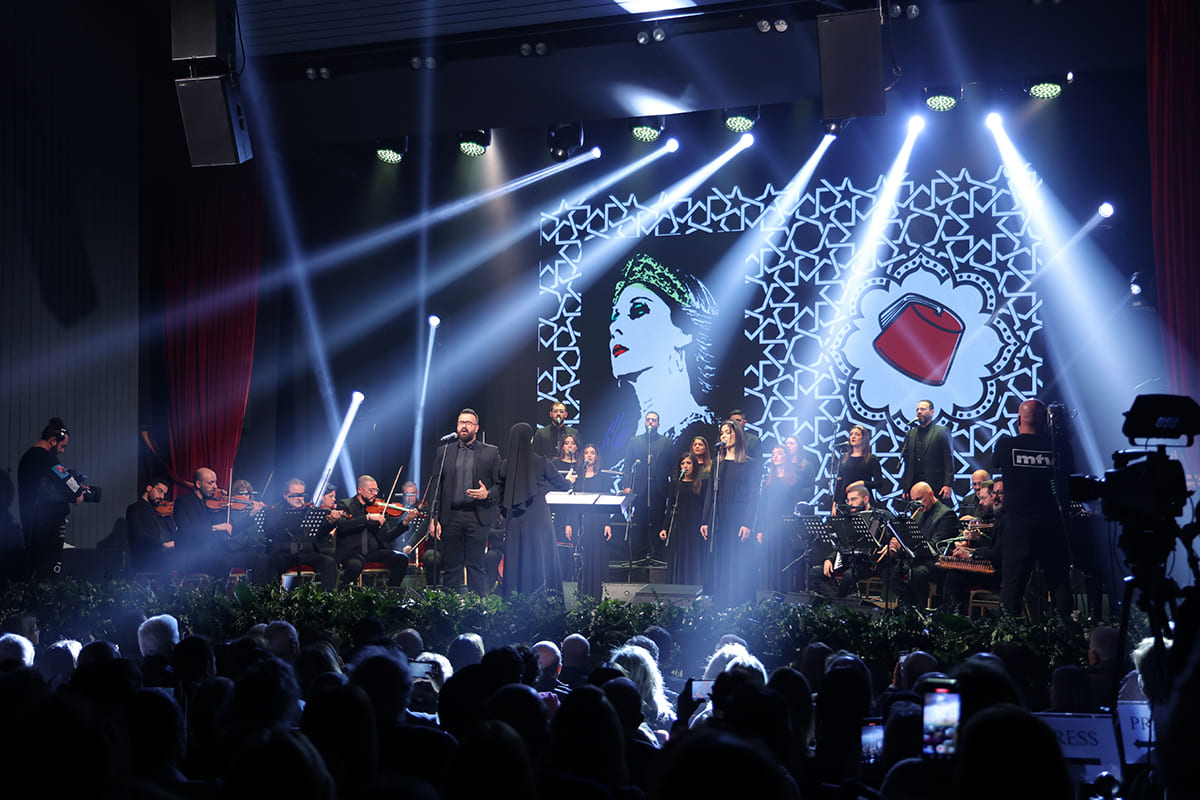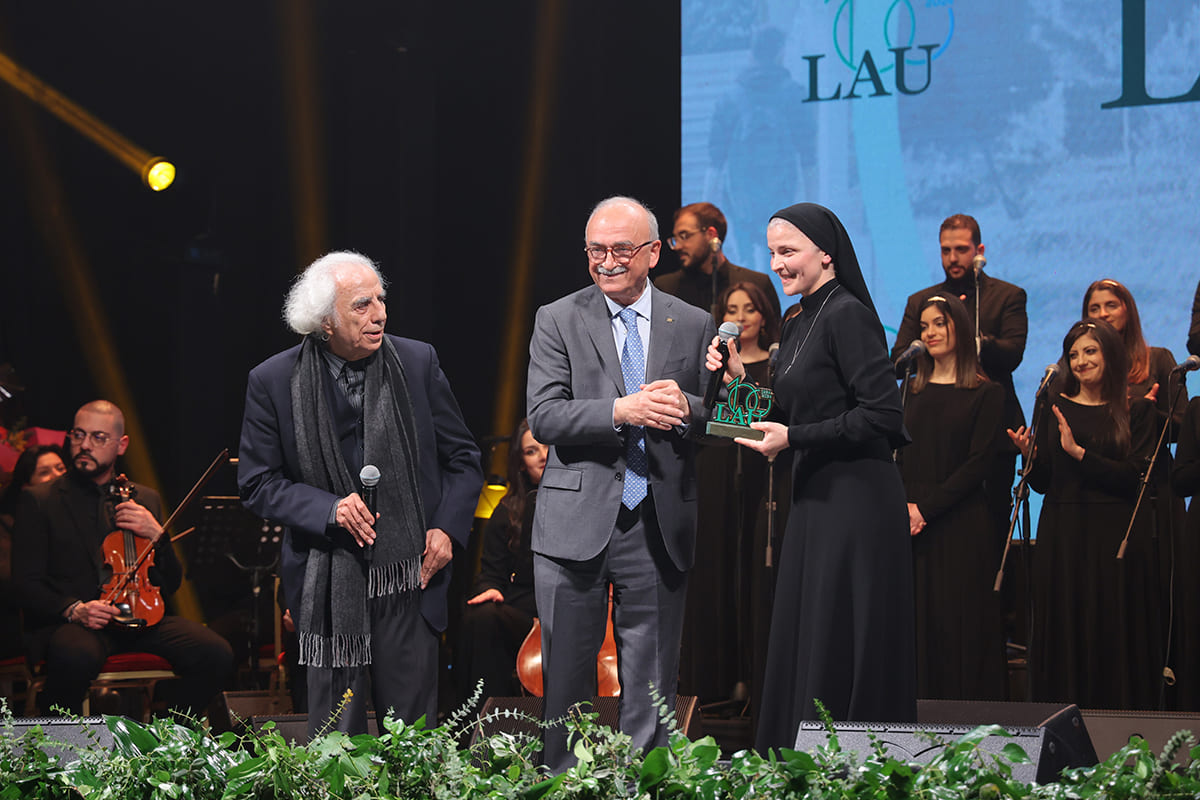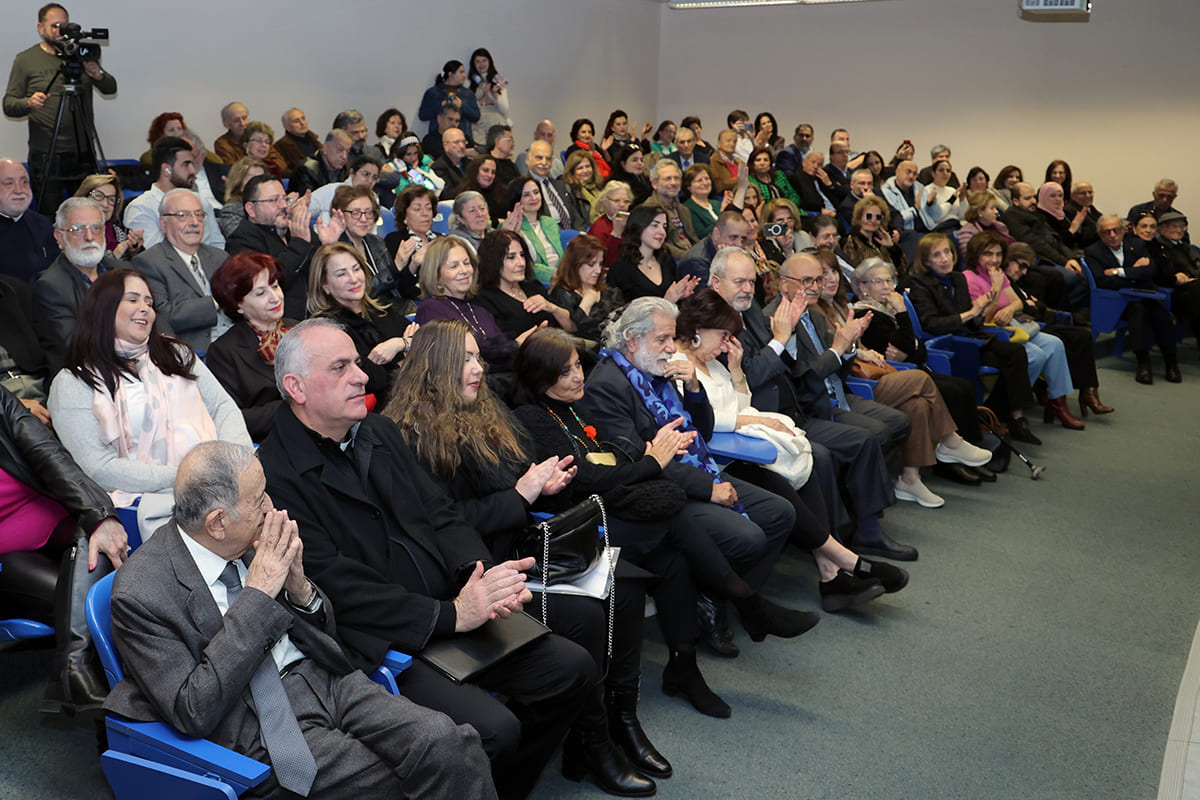LAU Centennial Revives the Era of the Rahbani Brothers and Fairouz
The Center for Lebanese Heritage pays tribute to the trio’s musical and cultural influences.
As part of its series of events marking the university’s centennial year, the LAU Center for Lebanese Heritage (CLH) shed light on the formidable cultural influence of the Rahbani brothers and Fairouz over three thought-provoking panel discussions, poetry recitals and a concert on March 4 on the Beirut campus.
“For 100 years, LAU has dedicated itself to serving higher education and Lebanese heritage,” said LAU President Michel E. Mawad in his opening remarks at the conference. Thanking CLH Director Henri Zoghaib for organizing the event, he noted how it “embodies the spirit of excellence that the university continues to pursue to enrich the country’s education, culture and art.”
Zoghaib’s efforts to commemorate the Rahbanis stems from his belief in the timelessness of celebrating their legacy and drawing inspiration from it. “This event is a reflection of a noble cultural heritage, from a glorious past to a future of hope, because creativity, upon which this country thrives, will endure,” he asserted.
Through a recorded message, Director Emeritus of Cancer Research at Baylor/St. Luke’s Episcopal Hospital in Houston Philip A. Salem shared personal stories about his friendship with the Rahbani brothers.
“Assi and Mansour were one spirit in love, brotherhood and creativity,” he said. “Theirs is a life-spanning story of culture and heritage that touched my life, and when ‘Lebanon’s first lady,’ Fairouz, joined them, together they formed a holy trinity that elevated the country to new heights.”
For composer and singer Marcel Khalife, the Rahbani brothers transformed the way songs were written because the music influenced the lyrics, and that by and of itself freed the artist performing it.
“They were able to bring historical tunes from the East to the forefront, from Byzantine and Syriac times to Christian carols and Islamic chants, all the way to colloquial tunes that were recomposed into elegant orchestral music encapsulating beauty,” he said.
Offering some historical perspective, Father Badih El Hajj spoke about Fairouz’s early beginnings where she sang on the Lebanese Broadcast radio channel.
“In one of his interviews in 1977, Mansour Rahbani commented on her talent, saying that her voice and quality of performance only became better with time and that she has one of the widest vocal ranges for a female artist,” he said.
Quoting Rahbani from a later interview, El Hajj added: “We would not have been able to compose the way we did if it were not for Fairouz’s unique talent—there are certain songs that can only be performed by her.”
Author Fares Youakim delved into how the Baalbeck International Festival contributed to the Rahbani brothers’ success since the mid-1950s. “Their first musical, Mawsam Al Ezz, starring the late artists Sabah and Wadih Al Safi, formed the springboard for the success of the musicals that followed,” he said.
The pioneering beat of Ziad Al Rahbani, said researcher Hala Nohra, served his mother’s talent. “This brought Fairouz closer to the younger generations and created a new fanbase, while elevating both artists’ talents and unlocking a new chapter of musical innovation, catering to both elite and populist audiences,” she said.
The three-panel discussions featured Rahbani poetry recitals by Zoghaib, which transported the audience into their literary realm, independent of their music. The day culminated in an enchanting evening concert at Irwin Hall by the Philokalia Institute’s Ashtar Ensemble, conducted by Sister Marana Saad.


